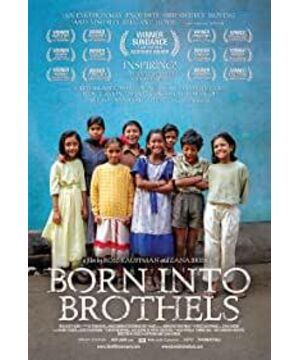Perhaps children who have lived in rural China since childhood can understand what is meant by "closeness and symbiosis". Your life has no privacy, your home is never locked, your life is full of gossip from your neighbors and vice versa... More importantly, this close relationship protects and hurts the individual. For example, as a minor, you come back from playing, and no elders in your family have time to prepare meals. At this time, you will consciously go to the neighbor's house to eat, but in the eyes of the neighbor, you just have an extra pair of chopsticks. It is called "protection"; and when you play outside and refuse to return home, you will often be scolded or even punched by familiar neighbors first, and at the end, you will be added with the sentence "You are not good! I tell your parents to go !", which is called "injury".
Children who grow up in such a close-knit environment also tend to have more collective consciousness and less exploration of their own desires. It's like a rural girl I know who is not much younger than me. Before she was 20 years old, she married a "little boss" who opened a black Internet cafe under her family's own initiative. got pregnant. Such a flash marriage made it too late for her to find out whether she and the other party were suitable. Since then, she has spent all day complaining and crying; and her parents instead of speaking for their daughter, reprimanded her: "How can you be someone else's daughter-in-law like this? Son? What kind of decency do you have?!" The so-called "decency" is a set of ethical systems that everyone in the small community abides by. It not only makes this girl the daughter of her parents, but also the wife of the domestic abuser. She has also become the daughter-in-law of the other family, as well as the mother of the child. Under the interweaving of so many interpersonal ethics, this unhappy girl chose to cry and complain instead of divorce; because many of her ancestors were struggling to support such interpersonal ethics in tears. If she runs away, what greets her is not cheers, but saliva that can drown her.
So, her "self" is lost.
When one loses oneself for decades, it is unlikely to be found; yet in the documentary Born Into Brothels: Calcutta's Red Light Kids, these children are still in their Before growing up to understand what "self" is, I met a photographer from the United States. The photographer undoubtedly gave these children an enlarged eye: the camera.
Through free learning sessions on film cameras, these children photographed their families, their playmates, and things they thought were beautiful. An interesting point is that this photography teacher has been looking for various ways to "help" these children to live what she considers a "normal" life, such as having the right to go to school; she even took these children's works to go. Apply for the exhibition, and then send these children on the plane to the United States to visit the children's video exhibition venue in person. Under the guidance of the teacher, these children all said at the end of the film the future they aspired to, and one of them said, "I want to go to college."
The film leaves a realistic dilemma at the end, and it is in the non-unilateral voice that thinking is possible, and it is possible for us to think: Are these children looking for themselves, or are they taking other people's dreams as their own Pursue.
View more about Born Into Brothels: Calcutta's Red Light Kids reviews








